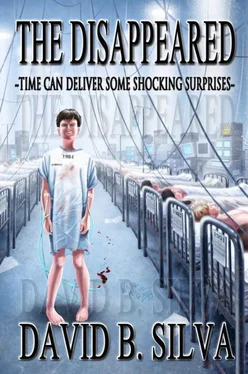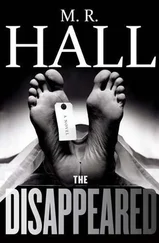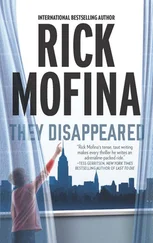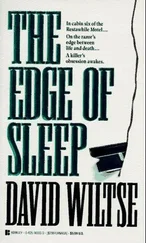He stopped outside his hotel room, feeling worst for the wear, and dug his card key out of his wallet. Earlier, he had tucked it behind the fake driver’s license and for a moment he thought he might have misplaced it. But it was there, and even though it was a struggle getting it into the slot, the card key fit.
The lock clicked.
The door opened automatically.
Mitch went in.
He took off his suit coat, hung it properly in the closet, and loosened his tie. He slipped out of the black dress shoes he had been wearing (spit shined the way he had learned in the military) and placed them side-by-side at the bottom of the closet. People didn’t wear black dress shoes anymore. Maybe occasionally to church on Sundays, though even then it was the exception and not the rule. A long time ago, the country had lost all sense of propriety. But not Mitch. When he did things in this world, he did them properly, with respect to his past and his family and his superiors. And he always respected his uniform and his equipment. That was the way it was supposed to be. Anything less might get him killed.
Just ask Amanda Tarkett.
Oh yes, just try to ask her.
She had done a very stupid thing tonight. After she had dropped off the boy, she had gone to her mother’s house. That had been her first mistake. Her second mistake had been fatal… she had taken her mother’s dog for a walk.
Mitch finished removing his tie, which he hung over the shoulder of his suit jacket, and dragged himself into the bathroom. He splashed water over his face, dried off, then stared into the mirror, into his own eyes, and wondered (almost so absently that it slipped by unnoticed) how he had found himself in this place, at this time, doing something that didn’t set well with him at all. He wasn’t thinking about Amanda Tarkett now. He was thinking about the boy. There was something about involving children…
He had never imagined that things would someday lead him so far astray.
Out in the hall, footsteps passed by.
Mitch glanced over his shoulder at the reflection of the doorway in the mirror, listened, and heard the steps gradually fade into the distance. All he wanted now was a good night’s sleep. He folded the towel, then brushed his teeth and used the toilet before pulling back the covers and finally climbing into bed.
He would sleep uninterrupted for five blessed hours, and when he would awaken again, Mitch would awaken with only one thought on his mind: to find the boy and return him.
That was the way it had to be.
It wasn’t until nearly four o’clock in the morning, with the cold night painting the windows with frost, when they finally headed off to bed. Teri slept in the bedroom, with the boy on the floor in a sleeping bag beside the bed. Walt slept on the couch in the living room.
Through the window, he could see the tiny puff of a cloud kissing good-bye to the moon, two bodies drifting apart. It had stopped raining. The moon was a huge crystal ball in the sky. If only it could tell him where this thing was going.
A chill passed through him.
He closed his eyes and tried to sleep.
The boy was sitting on the couch, watching an old rerun of Roseanne , when Teri came out of the bedroom the next morning. It was a little after ten. The sun was already slanting above the building across the way and there were tendrils of steam rising off the asphalt in the courtyard below.
“About time,” he said, his eyes riveted to the television.
“Where’s Walt?”
“Out. He left a note on the counter.”
Teri yawned, feeling very nearly as tired this morning as she had last night before she had gone to bed. She didn’t get many opportunities to sleep in late. Then again, there weren’t many occasions when she found herself up after ten the night before. Strange events made for strange hours, she supposed.
The note, which had been written in precise, draftsman’s letters, was short and to the point: TERI, THOUGHT I’D CHECK OUT THE PRINTS. CAN YOU GET THE KID IN TO SEE HIS DENTIST? HOPE YOU SLEPT WELL. MEET YOU HERE THIS AFTERNOON. AFTER TWO? WALT. P.S. MAKE YOURSELF AT HOME.
“Did he say anything?” she asked.
“He was already gone when I got up.”
“When was that?”
“’bout half-an-hour ago,” the boy said, without much interest. Teri had to remind herself that whether he was Gabe or not, he was still an eleven-year-old, and like most eleven-year-olds he apparently had a habit of tuning in the television while he tuned out the rest of the world.
“Did you get yourself something to eat?”
A mumble.
“Gabe?”
He glanced up, a semi-vacant expression on his face, and while Teri thought it was probably a trick of the light at first, suddenly she thought she could see a thin streak of gray in his hair. It swept back from his temple, over his right ear, and disappeared into his natural coloring.
She grinned. “What did you do to yourself?”
“Nothing.”
“Then what’s that in your hair?”
“What?”
“Come here a minute.”
“What is it?”
“Just come over here.”
He stood next to her, and she angled his head so that the right side of his face was under the light. There was a gray streak, all right. It was faint, but clearly visible. It looked almost as if he had taken some ash in his fingers and run them through his hair as a joke.
“Hold still,” Teri said. She plucked one of the hairs.
“Ow! What did you do that for?”
“Look at this.” She showed it to him. “You’re turning gray.”
His name was Aaron Thomas Jefferson. He was thirty-five, black, and by far the best damn identification technician Walt had ever worked with. His training had come through the FBI, his first on-the-job experience through the Criminal Identification Section of the department. Walt had only a cursory understanding of the deltas and dots and trifurcations that defined identification points. Aaron was the expert.
“I’ve got a full load,” Aaron said without looking up. He was using black ink to trace a photographically-enlarged print onto a sheet of thin tracing paper.
“Something for the FBI?” Walt asked, making reference to the tracing.
“It’s from that double homicide last week, on the west side.”
“I think I read something about that.”
“Yeah, well, I’ve had three men working on a non-suspect match and it looks like the guy might not be a local.” Aaron raised the pen off the paper, let out a breath, and sat back. “So what have you got?”
“I’m not sure.” Walt pulled the 3x5 cards out of his pocket and dropped them on the counter next to the light box. Each card was labeled. One: Teri Knight. Two: Gabriel Knight. Three: Suspect. 5/13/95. Instep of right shoe belonging to Mrs. Knight. Four: Suspect. 5/13/95. Back side of right shoe belonging to Teri Knight.
“I see you haven’t lost your training.”
“Like riding a bike.”
Aaron glanced at the cards. “Isn’t she—?”
“Yeah,” he said quickly.
“Okay. So, what am I looking at?”
“An attempted abduction.”
“Is the department involved?”
“No,” Walt said.
Aaron shook his head. “Best I can do is probably four or five days. I’ll have to handle it myself. After hours.”
“I appreciate it, Aaron.”
“Yeah, sure.” He dropped the cards back on the counter. “So when you coming over for dinner again? Tina’s been asking about you.”
“Soon,” Walt said. It had actually been several years since they had last gotten together. At the time, Walt had been going with a law clerk, who worked for the county. Her name was Rachel Burack. They had met by accident one day, when Walt was searching records for a case he was working on, and Rachel sat down next to him in search of some records of her own. The relationship hadn’t lasted. She had become impatient with the sometimes relenting way he went about his business, the way he let himself become consumed by it. And when he couldn’t—or wouldn’t—change, she had moved on. It had no longer been Walt and Rachel after that. It had simply been Walt. Walt and his clients. Everything else had fallen away.
Читать дальше












